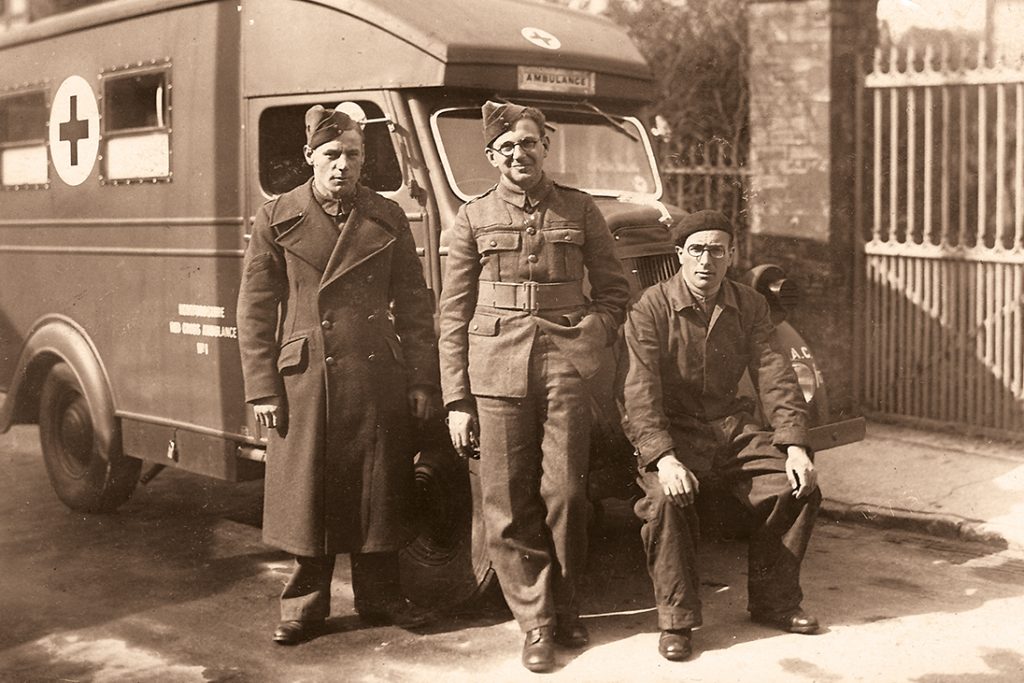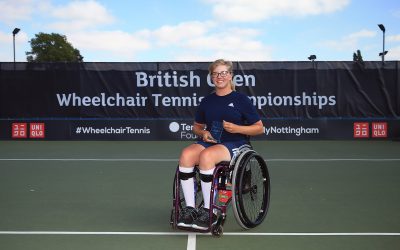My father became known in the last quarter of his life for organising a Kindertransport from Czechoslovakia in 1939. Of course, there was a much larger Kindertransport which brought nearly 10,000 children to Britain from Germany and Austria organised by a consortium of Jewish, Quaker and community groups, but their remit didn’t include Czechoslovakia.
In September 1938, Britain, Germany, Italy and France signed the Munich Agreement which gave the Sudetenland in Czechoslovakia to Germany.
Hitler had claimed this region due to the high proportion of ethnic Germans living there. Chamberlain thought this would prevent war.
The day after the agreement, the Germans marched into the Sudetenland, terrorising all those who Hitler had threatened including politicians, teachers, intellectuals, communists and Jews, indeed anybody who had said anything nasty about Hitler, (and that included the Jews, of which there were many thousands in that area).
So with a day’s notice those people had to pick up their belongings and flee for their lives to the centre of Czechoslovakia.
In the autumn and winter of 1938, there were tens of thousands of refugees looking for sanctuary.
At the time, my father was a London-based 29-year-old stockbroker.
He came from a Jewish family background, his parents were Jewish, but he had been baptised in 1916 and brought up as a Christian.
The strange thing about coming from a middle class, Jewish, stockbroker/banking background was that he was politically left wing and joined the Labour party.
My father decided he was going to try to bring endangered children out of Czechoslovakia to Britain. He had a motto which said: “If something is not impossible, there must be a way of doing it”. He felt this was difficult, but not impossible.”
He had many friends who were luminaries of the time in the Labour party including Aneurin Bevan, Stafford Cripps, George Russell Strauss, and Jennie Lee. They spent a lot of their time talking politics, including what was going on in Europe.
He also had family who had direct experience of the Nazis, including his aunt who had fled Germany in 1933. From pretty early on, my father was beginning to understand how violent the Nazis’ behaviour was towards the Jews.
At Christmas 1938, my father got a phone call from a friend Martin Blake.
Martin was a schoolmaster at Westminster School who took a group of pupils skiing every winter, which my father joined. My father got a phone call from Martin saying the trip was off, that he was in Prague and suggested Nicholas should join him to see what he was up to.
With no more information than that, my father changed his plans and a week later arrived in Prague. Martin was also very involved politically and they had spoken a lot about Hitler’s plans. He knew if Martin was engaged in something, it would be something worthwhile.
My father arrived in Prague where he was introduced by Martin to a woman called Doreen Warriner. Doreen was an academic and a fellow volunteer who had flown to Prague and, with the help of the Labour party, was trying to smuggle out of Czechoslovakia and to safety all of the Sudetenland Social Democrat politicians who were on Hitler’s wanted list.
Doreen was getting them and their families out on trains though Poland.
Doreen encouraged my father to visit the refugee camps where there was snow on the ground and families trying to keep warm, with not much to eat. Many had fled without winter clothes.
We look with hindsight at these events and decide how we might act, because we now know what happened in the next few years. We have to try to understand this today when we look at a refugee crisis.
We don’t know what the outcome is going to be in future years, we have to act on the conditions we see at present.
My father had no foresight, as did nobody at that time, that Hitler would start a mass extermination programme.
So when he stood in the refugee camp and decided to do something, it was not because he had foresight, it was because the conditions he was witnessing at that moment were intolerable.
They bought him a ring engraved with a saying from the Jewish Talmud ‘Save one live, save the world.”
My father decided he was going to try to bring endangered children out of Czechoslovakia to Britain. He had a motto which said: “If something is not impossible, there must be a way of doing it”. He felt this was difficult, but not impossible.
He started meeting families who understood here was someone who was going to try to help them. While he was in Prague, my father met Trevor Chadwick, a schoolmaster from Dorset, who was sent by his school in January to sponsor two refugee boys and bring them back.
Trevor learnt from my father that he intended to bring a much larger number of children back to Britain, and Trevor agreed to run the Prague end of the operation if the Government agreed to his plan.
After three weeks in Prague, my father returned to London and went to the British Committee for Refugees from Czechoslovakia (BCRC), the organisation Doreen was working for.
He said he was going to visit the Home Office to ask for permission to bring children from Czechoslovakia.
But the BCRC urged him not to go as that would antagonise the Home Office, who were already dealing with another organisation bringing children from Germany and Austria. The Home Office felt eventually that the organisation would also agree to help Czechoslovak children.
On the way out of the office, my father took some BCRC headed notepaper and persuaded a local printer to make a stamp saying ‘Children’s Section’, which he duly stamped under the BCRC heading.
Nicholas then had a meeting with himself, the kind of meeting he really loved where things really got done, and he nominated himself as honorary secretary of the Children’s Section of the BCRC, and off he went to the Home Office.
Without the difficulty others had predicted, they agreed to him bringing home children from Czechoslovakia but with two conditions. Firstly: he had to find a foster family to look after the children and secondly: a £50 guarantee was required for their eventual repatriation.
He set about getting this done. Trevor returned to Prague, collecting lists of children, meeting parents, taking photographs and sending them back to England. My father wrote letters to the newspapers and magazines.
He had the assistance of people like Independent MP, Eleanor Rathbone, and the Unitarian Minister, the Rev Rosalind Lee, who also wrote to newspapers asking people to open their homes and their hearts to these endangered children.


Nicholas Winton (centre) with collegues in the Ambulance Service during the Second World War
It was a very slow process. This was not the age of emails and mobile phones.
It was all done by letter writing and the occasional phone call, and he would get a letter saying “we think we would like a child”, he would write back “would you like a boy or a girl, which age” and they would write back and so on.
He thought this was taking all too long, so he produced cards with photos of six to eight children on which he sent out for each family to ‘choose’ a child.
This sped up the work immensely. When asked about this later, my father agreed that it did look mercenary, but it was quick and he had to act quickly.
My father had learned to run projects independently from his work at the Stock Exchange and he had a method that worked. If he decided a project needed doing, he would assume everyone else would agree with him.
He would find volunteers by working out who would do a good job, walking up to them and pinning them against a wall so, by the end of the conversation, they would be volunteers. My grandmother was his first ‘volunteer’ and she helped him with the office work and later through the war with any support the children needed.
The idea of seeking permission and going through a committee was not his thing at all. He liked to be in charge and develop his own committee of those who would agree with him. I don’t know if that is the Rotary way, but it was effective.
The one thing my father knew about this mission is that there was not a lot of time. He and the political friends like him who had read ‘Mein Kampf’ believed that Hitler intended to occupy the whole of Europe. My father believed that war was imminent and he had very little time to achieve his goals.
He often had people saying you should not be doing this, but he would brush off those comments and get on with it.
The first transport arrived in Britain from Czechoslovakia on March 14th, 1939, the day after that the Germans broke their promise and invaded the rest of Czechoslovakia.
From then on, Doreen and Trevor were working under German occupation.
Trevor had to get the Gestapo to sign any exit permits for the children to leave Czechoslovakia.
Doreen encouraged my father to visit the refugee camps where there was snow on the ground and families trying to keep warm, with not much to eat. Many had fled without winter clothes.”
By May, after four transports had already arrived in Britain, he was officially asked by the BCRC to become the head of the children’s section – four months after that first meeting! He had volunteers working from his home in Hampstead, but now they moved into their office in Bloomsbury House in central London, benefitting from their extra resources.
Trevor had to negotiate with the Gestapo. He was a very gregarious, outgoing character, who knew how to behave to get the Germans to do what he wanted.
You would think the Germans would try to stop these children, but they didn’t.
The Germans wanted to rid Europe of Jews, and if these strange characters wanted to help them by taking these children to Britain that was fine.
The Home Office sent out permits for entry to the country and these had to be stamped by the Germans to get the children on the train.
The Home Office acted very slowly and sometimes the trains were ready in Prague and the Home Office permits hadn’t arrived. Trevor and Nicky’s solution was to use a printer in Prague who would make identical copies of the Home Office permits, which the Germans then stamped to allow the children to get on the train.
They crossed their fingers that when the children arrived in Harwich, the Home Office permits were there waiting for them, so they could swap the fakes for originals.
Whether you believe that is a correct way to do business, I don’t know. But they did what they felt they had to do.
Eight transports arrived through the Spring and Summer of 1939.
The ninth, which was the largest with 250 children was due to leave on September 1st, 1939, the day when the Germans invaded Poland, closed all the borders and two days later war was declared.
That train was cancelled, and most of the children on that train ended up in the Terezin Concentration Camp and then Auschwitz. That was heart-breaking for my father because there was no more he could do at that point.
The project was wound up, he went into the Red Cross because he was termed a conscientious objector.
It was not because he did not believe in war, it was because he was so furious with the Government and the way they behaved.
After two years he relented and joined the RAF. My father made his decision and looked for others to assist him carry it out.
He avoided those who disagreed or opposed him. He was not popular. In fact, he offended many people.
For instance a group of rabbis came to his house saying they understood he was bringing Jewish children from Prague to live in Christian homes in Britain and that must stop. My father said, ‘That’s not going to stop. If you prefer a dead Jewish child in Prague to one living in a Christian home in Britain, that is your problem, not mine’.
He had a thick skin to get his projects done and it worked.
In terms of this project, my father felt he had failed. They had 5,000 names on this list and only 669 were saved. But 50 years later when the story came out and he met some of his children, we discovered there were about 7,000 people alive because of what he had achieved.
Though we look back at the Kindertransport as a positive thing, there were dissenting voices then as there are today about refugees. There were headlines at the time which read: “No open door to refugees”, “Every refugee is an enemy alien”.
So what does this story teach us for today’s problems? The scale was overwhelming, but doing something achieves something.
When my father met some of the children who he rescued for the first time as adults, they bought him a ring engraved with a saying from the Jewish Talmud ‘Save one live, save the world’.
Barbara Winton has written a biography of her father “If it’s not impossible – the life of Sir Nicholas Winton”. The book & Ebook is available from www.amazon.co.uk
For more details visit this website.


























































